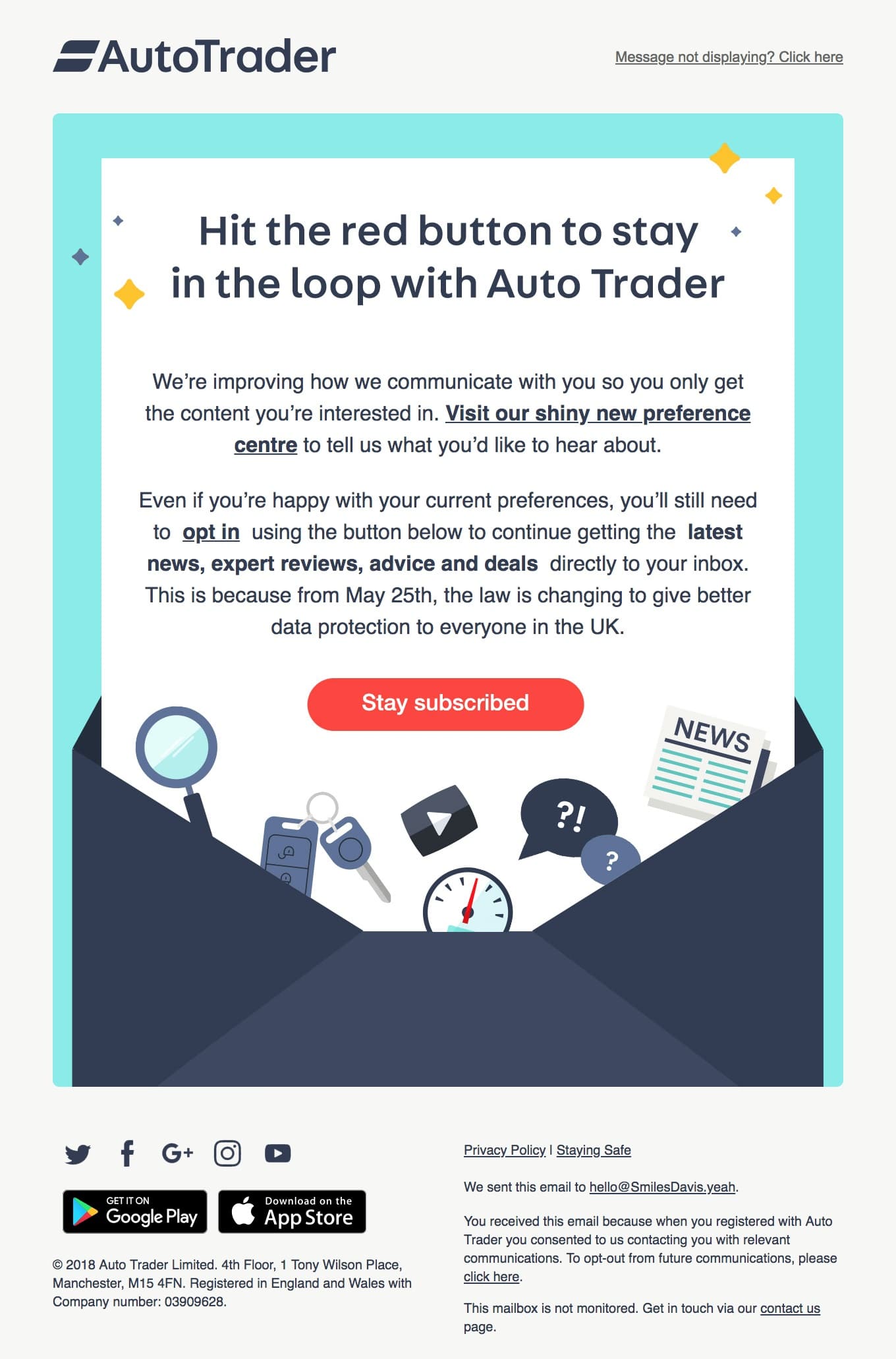International laws vary with regard to email marketing, but one thing remains the same: The success of email marketing is built on consent, and today’s consumers expect authenticity and privacy.
The benefit of email marketing is that it enables brands to deliver targeted messages to consumers. If you want to capitalize on the high ROI of email marketing, you’ll need to build trust with a quality subscriber list.
However, if you’re marketing to consumers who don’t opt in to your list, your message is an invasion of their privacy. At best, you’ve curtailed the opportunity to develop a loyal, long-term brand fan. At worst, you’ve damaged your brand’s reputation and are in danger of being marked as spam.
Global laws vary
In 2003 the US passed an act called Controlling the Assault of Non-Solicited Pornography and Marketing (CAN-SPAM). It doesn’t prohibit the buying of an email list, but it does require a clear unsubscribe button on every email.
Laws in other countries are more stringent. The Canada Anti-Spam Legislation (CASL) requires brands to get explicit opt-in permission from their recipients, in most cases. Even where it allows inferred consent, CASL places limits on how that contact information is used. Buying a list does not count as an opt-in.
Source: Really Good Emails
In Europe, the General Data Protection Regulation (GDPR) replaced the EU Data Protection Directive. This European privacy act took effect on May 25, 2018. One of the essential tenets of the GDPR is transparency and consent. By being forthcoming with how data is received, stored, and processed, organizations can actually get consent from individuals that is genuine, leading to a list of interested, engaged subscribers.
Whether or not your organization resides in the EU, the GDPR is not a regulation to ignore. It’s wise to take time and care to look into the implications the regulation poses, and determine what your obligations might be for you and your subscribers.
Best practices for ensuring adherence to international email regulations
If you have an international customer base, you may be tempted to segment your list by country and then try to adhere to the laws of each country. But email openers can cross borders very easily, and you can never truly guarantee where someone will open your message.
It could be better practice to consider a few simple options:
- Take the time to cultivate your own lists. Though building your list organically may take more time than purchasing one, you’ll know that each subscriber truly wants to receive your messaging.
- Keep a record of each opt-in to your list.
- Always include a prominent unsubscribe button.
- Last, but not least, have open and honest conversations with your legal or privacy team. Make your own list of compliance tasks and repeatable steps to maintain compliance with your legal obligations.
Does it really matter?
In the case of email marketing, being mindful of regulations is best for not only your subscribers, but for you as well. Are you out to build a reputable brand that thrives in the long term? Then building your own organic email list is a critical step in the right direction.
What now?
Now that you understand the importance of growing your own subscriber list, it’s time to get to work. Check out our in-depth guide to email list building and jumpstart your subscriber list.
